In the next few chapters, I share a condensed version of my college journey, a season that shaped me in ways I didn’t expect. Chapter 7 begins with the most unexpected twist: I fell in love with my girl best friend. And in doing so, I began to question the label I had held onto for so long. I came to realize that I wasn’t gay, as I had always believed, but bisexual. It was also the time I finally came out, not in secret, but with pride. This was the chapter where things got real. Where love broke the mold, identity evolved, and I stepped into the queer community with both truth and boldness.
The School I Didn’t Choose
UST was never my dream school.
I wanted La Salle. It was closer to home, and I was ready to get out of the conservative Catholic bubble I grew up in. Coming from Letran, UST’s sister school, it just felt like more of the same. I didn’t want that anymore. I didn’t like the idea of wearing a uniform again. I wanted that college life you see in movies: no dress codes, more freedom, more expression.
So when I didn’t get in, I was crushed. I took it as a sign that I wasn’t good enough. I felt like a failure.
But God had other plans.
I got into UST, and I entered with a heavy heart. I was determined to leave. I told myself I’d study hard, get high grades, and transfer.
But somehow, I stayed and looking back, I now understand why.
First, there really is something about the UST campus. A lot of people say that, and it’s true. There’s this quiet charm to it. The architecture, the trees, the atmosphere—it’s romantic in its own way. Moreover, I also made incredible friendships here, so there was something about the people, too.
Second, UST is where I found my voice. I’ll talk more about that in the next chapter.
And third, and maybe the biggest reason of all, UST is where I met her.
Her
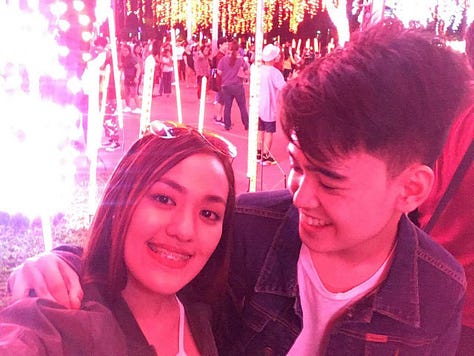
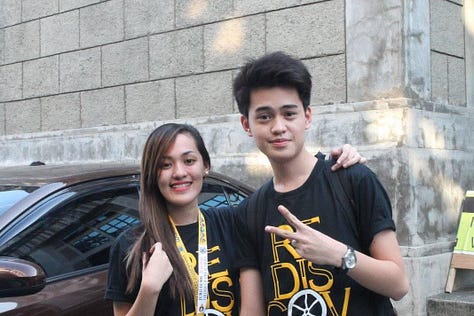
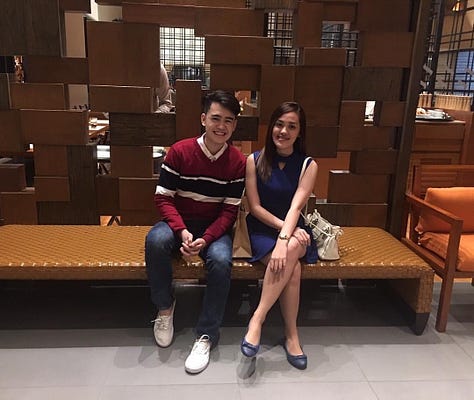
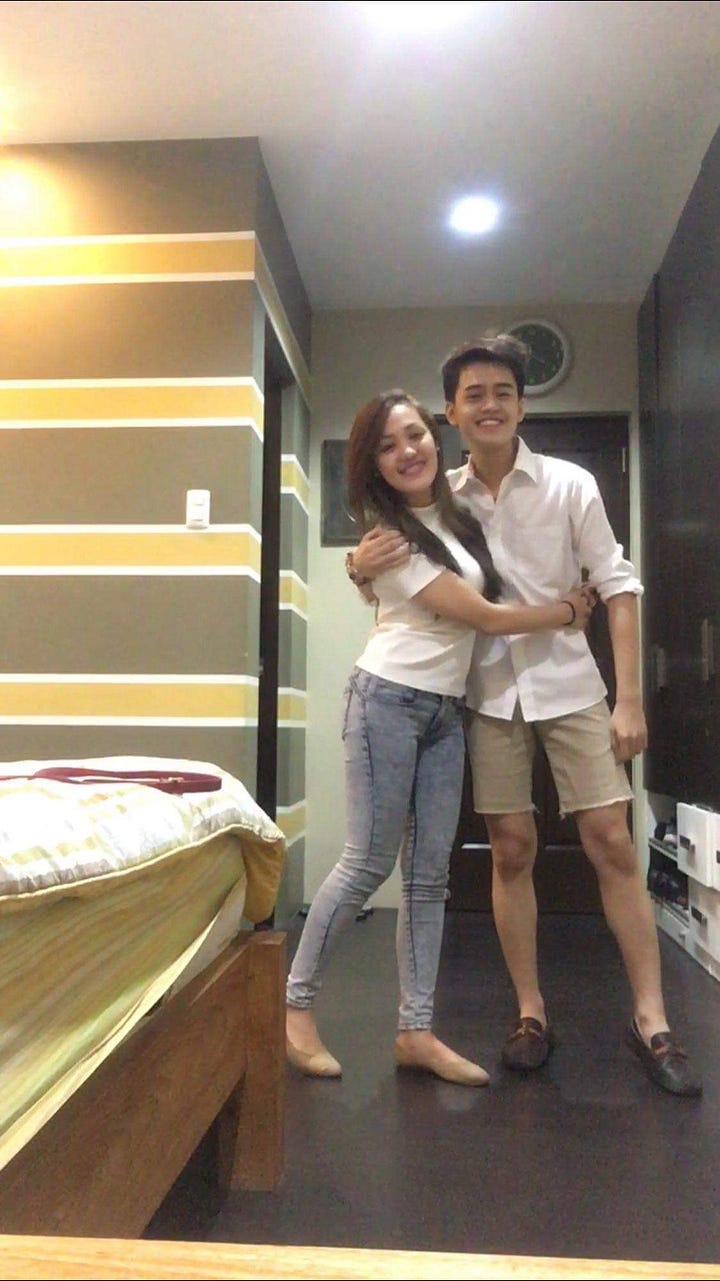
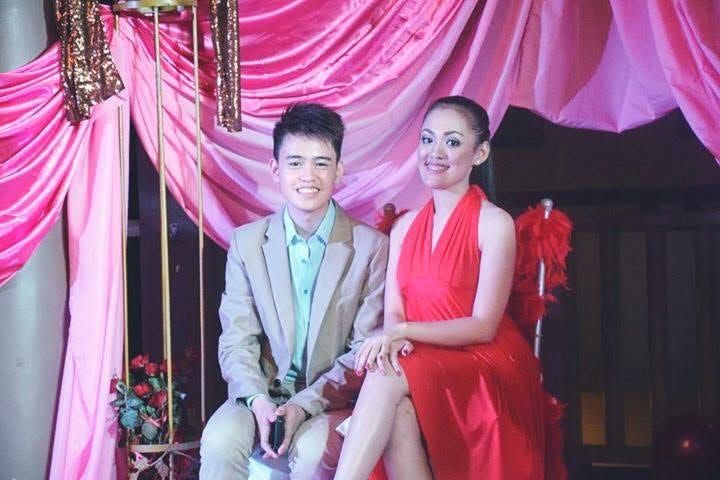
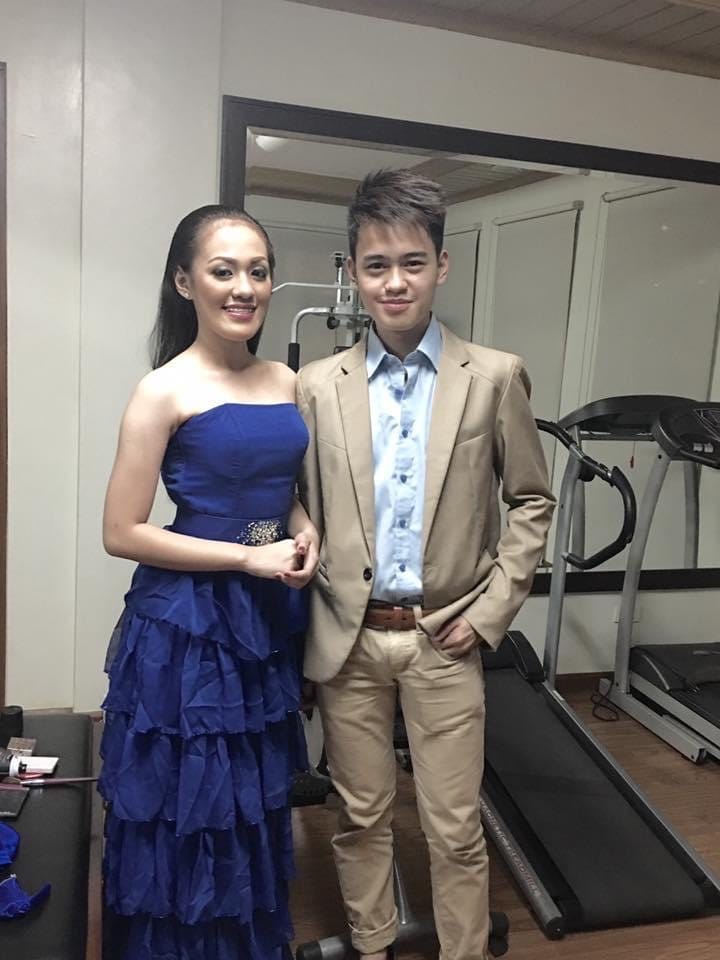
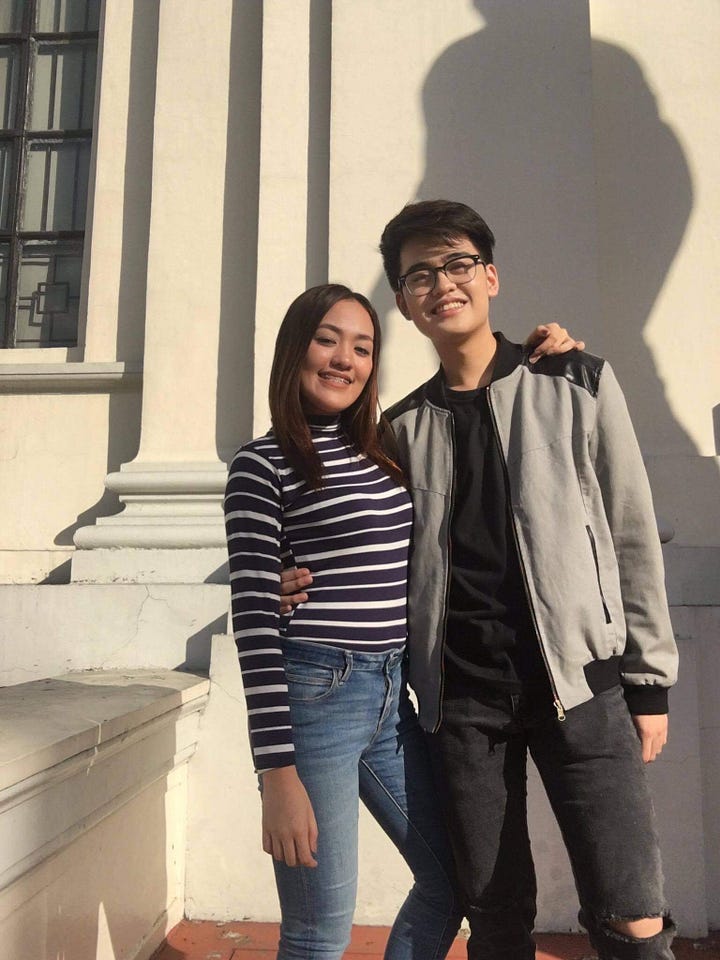
She was my best friend. And then, somehow, she became more than that.
We were really close. We’d walk to class together, hang out all the time, talk for hours about everything. She felt safe. She felt like home. Eventually, I started developing feelings for her — real, undeniable ones to the point I got jealous of the other guys.
This confused people, including myself, because I was pretty out in college to the point that everyone in school knew I was gay. She even knew about the guys I had crushes on. In fact, some of our professors would say it out loud — half-joking, half-curious.
There were three of us in class who were openly part of the LGBTQ+ community. One was already a transgender woman. Another was flamboyant and unapologetically fabulous — like Bretman Rock. And then there was me. I was expressive and feminine.
Some professors would tease, “I don’t think Anton’s really gay-gay.”
And after falling for her, I started wondering too. Maybe my professors were right.
But this wasn’t forced. It wasn’t a performance. It wasn’t about trying to fix myself. It was just real. It felt right. It felt honest. And it confused me. Not in a shameful way, but in a very human way.
I started thinking, “Maybe I’m not just gay. Maybe I’m bisexual.” Or maybe sexuality isn’t something you can always define. Maybe it really is more fluid than we think.
What I knew for sure was that I had feelings for her. And they were real. Truly, love has no labels.
Fast forward to the day I told her. I came across this question online: “If today were the end of the world, what would you do?”
The first thing that came to mind was, “Tell her.” Tell her I liked her.
I didn’t plan it. I didn’t rehearse anything. I just knew I had to say it. So I did.
I told her, “I like you. I don’t know why. I’ve always thought I was gay. And the girls I liked before? That was me trying to be straight, trying to fix myself. But you’re different. I’m not trying to be anyone else. I just really, really like you.”
She didn’t say she liked me back right away, but I could tell there was something there. I saw it in her eyes, in the way she stayed, in the softness of her presence. There was a tenderness and an unspoken understanding.
We didn’t put a label on what we were. When people asked, we’d just say, “We’re happy.”
And we were. We really were happy to the point we acted like an actual couple.
She made me feel deeply seen. She believed in me. She always saw something more in me than I could see in myself. She was proud of me, not in a passive way, but in a way that made me feel celebrated.
That kind of love is rare. And it made me fall even harder.
My Parents Misunderstood
Eventually, I introduced her to my family. I was proud to bring her home.
But they misunderstood.
They thought she was a sign I was “getting better,” that she was the girl who would finally “fix” me. They were hopeful. And in their own way, they were trying to be supportive.
But they didn’t know that her presence in my life wasn’t about changing my sexuality. It wasn’t about rebellion either. It was love. Plain and simple.
Later on, when I officially came out, they told me that this moment with her was when something in them started to shift. Even if they didn’t fully understand, they saw that I wasn’t pretending. I was happy.
Torn Between Two Longings
Even while I was happy with her, I was also curious.
I had never dated a guy. I had never been in that kind of relationship. I wanted to know what that was like — to be desired, to be loved by a man, to live out the part of me that had only existed in fantasy.
And yes, at one point, I even fantasized about becoming a porn star. That was a real thought I had in college. Maybe it was about control. Maybe it was about visibility. Maybe it was just escape. Whatever it was, thankfully, it stayed a fantasy.
The truth is, I was torn.
There was the comfort and love I found in her — real, grounding, intimate. But there was also this part of me I hadn’t explored yet. The part that was still wondering.
Eventually, I knew I had to let her go. Not because what we had wasn’t real, but because I didn’t want to keep offering her only half of myself. She was my best friend, and I loved her too much to lie — even gently. Even silently.
But the letting go wasn’t clean. It came with fear so much fear.
I was scared she’d think I had just used her that I had clung to her to look straight, to hide, to repress.
I was scared that people around us, who knew how feminine I was, would say, “Of course, he never really liked her.” That they’d dismiss my love as fake. As a front. As performance.
Because in their eyes, someone like me — soft, expressive, obviously gay — didn’t “look” bisexual.
I felt like I hadn’t earned the label. I didn’t feel “bisexual” enough for the LGBTQ+ community, but I didn’t feel straight enough to be with her, either.
It was like I had to prove myself to both sides. Like I was always walking this tightrope between being believed and being erased.
And the hardest part was knowing that my feelings for her were real. That I wasn’t pretending. That it wasn’t about fitting in or trying to be “normal.”
It was just love. And it didn’t need a label to be valid.
But the world around me didn’t always see it that way.
The Soundtrack of That Season
Troye Sivan’s music helped me through that time.
His album Blue Neighbourhood captured everything I was feeling—the tension also between faith and identity, love and shame, expression and fear. The song “Heaven” hit home. I asked myself the same questions he did.
How can I love a man and still be told I’m living in sin? How can I be my truest self and still belong to God?
At the time, my answer was simple. I told myself, “I’m a good person. Love is love. And God is love.”
That helped me sleep at night.
New Year’s Eve of 2017
But by the end of 2017, I knew I couldn’t keep living two lives.
So on New Year’s Eve, I came out to my parents.
No big drama. Just the truth.
I told them I was gay.
I’ll never forget what happened next.
My dad got up and hugged me tightly. He cried like really cried. And through his tears, he said, “I will love you anyway.”
My mom joined in, holding me close. It was quiet, emotional, and sacred.
I told them what had been breaking my heart for years. That I had spent so long thinking I needed to earn their love. That I had worked so hard to be good, excellent, and impressive, so I could cover up the fact that I thought I had failed them just by being me, being gay.
They listened.
And then they said, “What matters most is that you’re a good person. And we believe we raised you to be one.”
They told me they had expected I would come out one day. But they thought I’d only do it when I had a boyfriend. Or when I was already successful and living on my own. They said, “We thought you’d wait until you didn’t need us anymore.”
And honestly, that had been the plan. That’s what a lot of queer people do. You come out when it’s safe. When rejection won’t destroy you. When you can afford to lose love.
But I didn’t want to wait anymore. I didn’t want to live a lie. And I’m grateful I didn’t.
After that, I told my siblings. They embraced me with so much love.
And then I posted about it on Twitter. It wasn’t planned. I just wanted to be real. That post reached thousands of people (deleted my Twitter so I can’t find the tweet, but posted it on Instagram stories) And it gave others the courage to come out too.
But the message that meant the most came from her.
I messaged her and apologized. I told her, “Please don’t think I used you. I really did love you. I just didn’t want to love you half-heartedly. I wanted to be ‘me’”
And that’s when she told me the truth that she had loved me too. She always had.
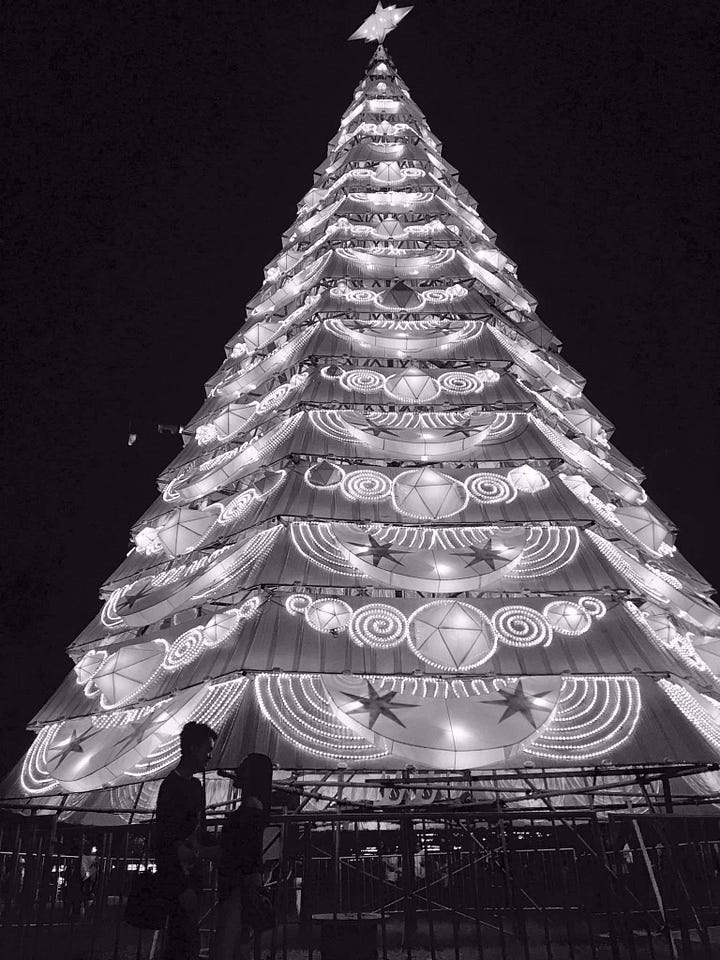

And even though we had let go, that moment gave me peace. It wasn’t fake. It wasn’t confused. It was love. It mattered. And it still does.
Lipstick and Liberation
I welcomed 2018, shining with so much authenticity. It became the year I could finally express myself freely, fully, and unapologetically. From the melancholic ache of Blue Neighbourhood to the bold, unfiltered freedom of Bloom, Troye Sivan’s music mirrored the journey I was on: from quiet confusion and timidity to proud self-expression.

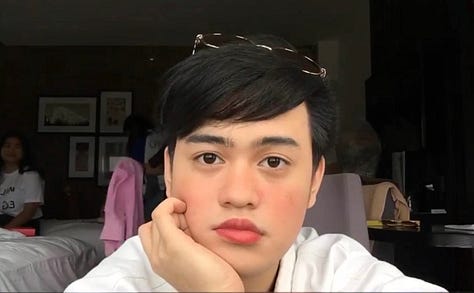
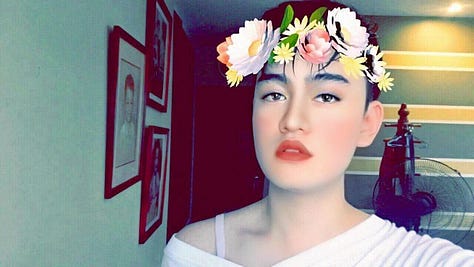
I started wearing makeup and high-heeled boots with sunglasses on my head.
A Pride pin on my chest. I walked differently. My voice softened even more, and my style changed.
I was finally out. Finally free. Finally… “me”
Of course, my parents had to adjust. I still remember my dad’s face the first time he saw me in lipstick. And my mom’s quiet reaction when I came out of my room wearing heels. There were awkward silences and some tension. But over time, they adjusted because underneath it all, I was still their son, just more myself than I had ever been.
This newfound confidence further fueled my passion for social change and using my voice to fight for progressive causes like gender equality and mental health awareness.





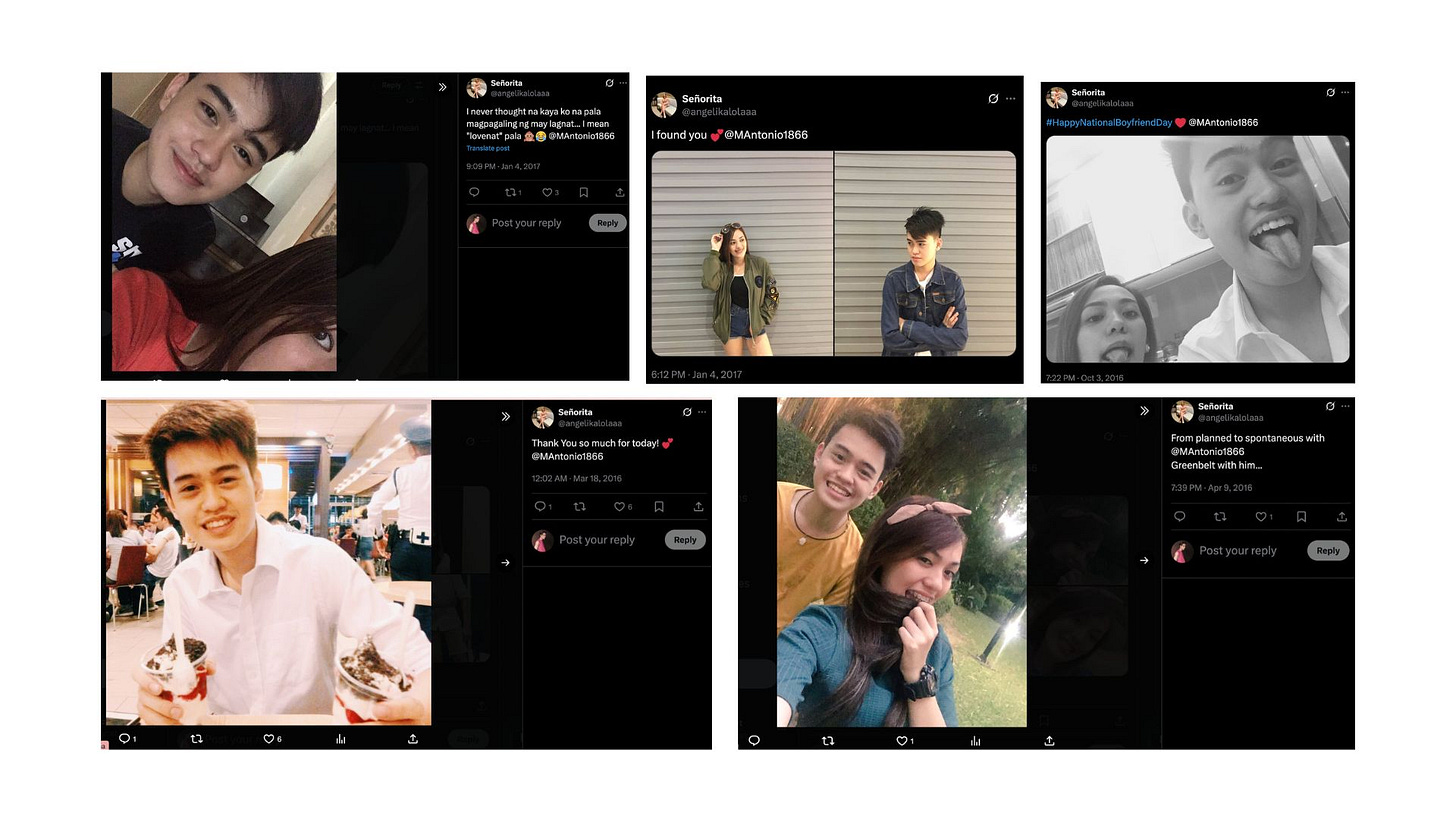
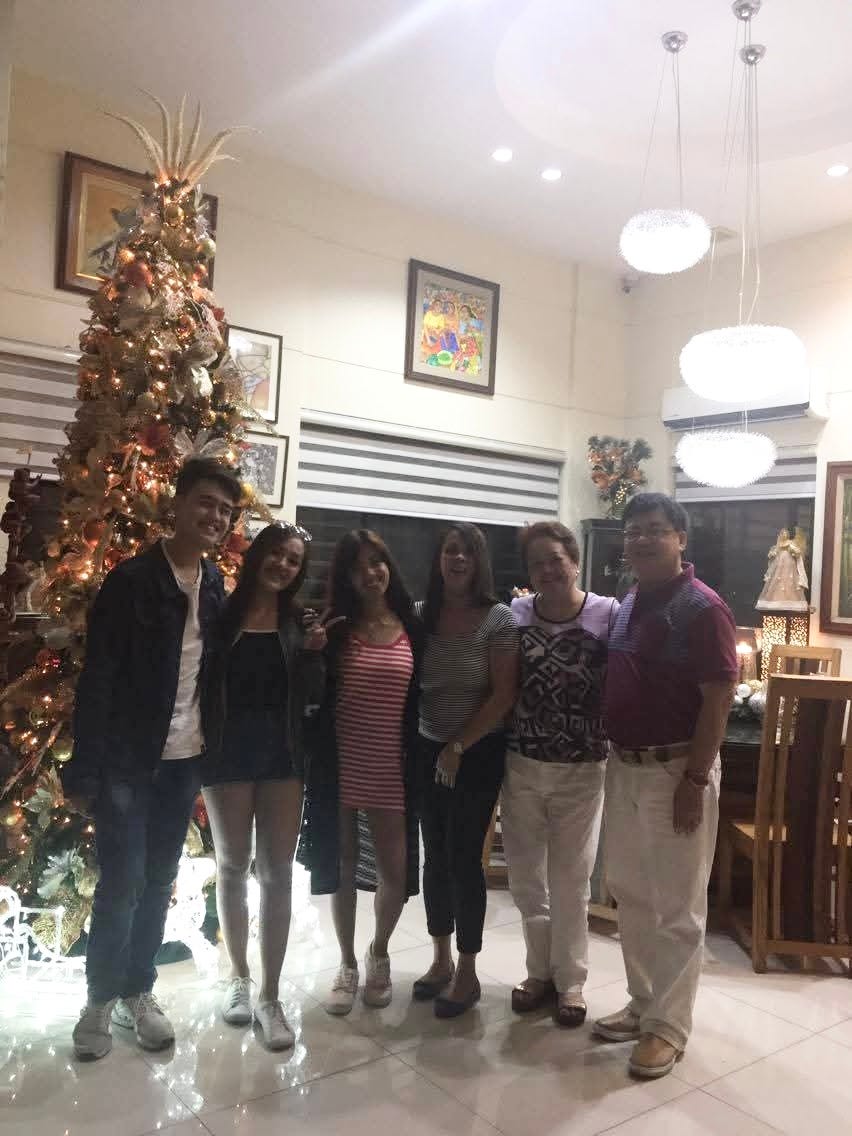







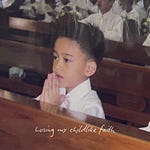

Share this post